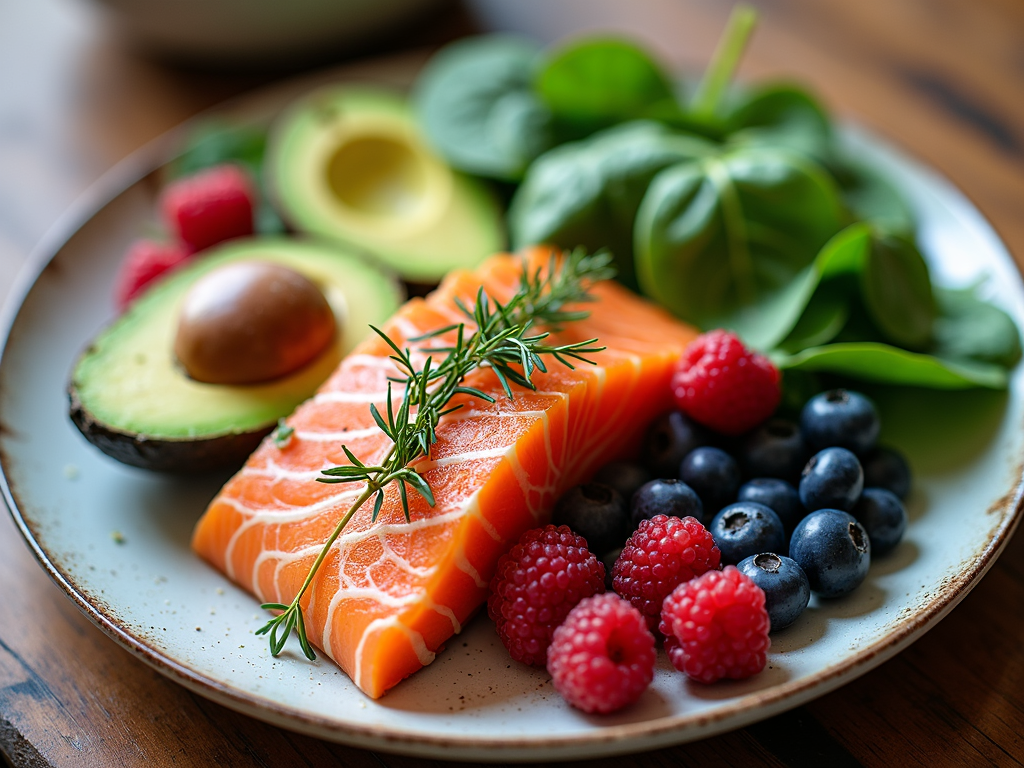Nutrition Tips for Optimizing Fertility: Your Guide to a Healthier Journey
June 20, 2025, 7:22 a.m.
Overview "Embarking on the journey to parenthood can be both exciting and challenging. For many, optimizing fertility through nutrition is a crucial step. This guide provides comprehensive insights into how your diet can influence reproductive health, offering practical tips to enhance your fertility naturally."
Main Content "Nutrition plays a pivotal role in fertility for both men and women. A balanced diet rich in essential nutrients can improve reproductive function, hormone balance, and overall health. Here are some key nutrition tips to consider:
- Increase Antioxidant Intake: Foods rich in antioxidants like berries, nuts, and green leafy vegetables can protect reproductive cells from damage.
- Focus on Healthy Fats: Omega-3 fatty acids found in fish, flaxseeds, and walnuts support hormone production.
- Maintain a Healthy Weight: Being underweight or overweight can affect fertility. Aim for a BMI between 18.5 and 24.9.
- Limit Processed Foods: Reduce intake of sugary snacks, fast food, and trans fats, which can negatively impact fertility.
Personal Insight: When my partner and I were trying to conceive, we noticed a significant improvement in our overall health and energy levels after incorporating more whole foods into our diet. It was a game-changer for us."

Preparing for Your IVF Cycle "Preparing for an IVF cycle involves more than just medical procedures. Nutrition can play a supportive role in this process. Here are some tips:
- Hydration is Key: Drink plenty of water to support overall health and bodily functions.
- Protein Power: Include lean proteins like chicken, tofu, and legumes to support cell growth and repair.
- Carb Conscious: Opt for complex carbohydrates like whole grains to maintain stable blood sugar levels.
- Supplement Smartly: Consult with your doctor about prenatal vitamins and other supplements that may benefit your fertility.
Personal Insight: During our IVF preparation, we found that meal prepping helped us stay on track with our nutrition goals. It reduced stress and ensured we were eating well."

Understanding the IVF Process: A Step-by-Step Guide "IVF, or In Vitro Fertilization, is a complex process that can be overwhelming. Here's a simplified guide to help you understand each step:
- Ovarian Stimulation: Medications are used to stimulate the ovaries to produce multiple eggs.
- Egg Retrieval: Eggs are collected from the ovaries using a minor surgical procedure.
- Fertilization: Eggs are fertilized with sperm in a laboratory.
- Embryo Transfer: Fertilized eggs (embryos) are transferred to the uterus.
- Pregnancy Test: A blood test is conducted to check for pregnancy.
Personal Insight: Learning about each step helped us feel more in control and less anxious. Knowledge is power!"
Table: IVF Process Steps
| Step | Description |
|---|---|
| Ovarian Stimulation | Medications to produce multiple eggs |
| Egg Retrieval | Collection of eggs from ovaries |
| Fertilization | Eggs fertilized with sperm in lab |
| Embryo Transfer | Embryos transferred to uterus |
| Pregnancy Test | Blood test to check for pregnancy |
Types of Gonadotropins in Fertility Treatments "Gonadotropins are hormones used in fertility treatments to stimulate egg production. There are two main types:
- FSH (Follicle-Stimulating Hormone): Stimulates the growth of ovarian follicles.
- LH (Luteinizing Hormone): Triggers ovulation.
These hormones are often used in combination during IVF cycles to optimize egg production.
Personal Insight: Understanding the role of these hormones made the treatment process less mysterious for us."

Summary "Optimizing fertility through nutrition is a powerful way to support your reproductive health. By focusing on a balanced diet, staying hydrated, and understanding the IVF process, you can take proactive steps towards your goal of parenthood. Remember, every journey is unique, and it's important to consult with healthcare professionals for personalized advice."